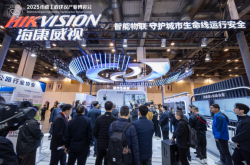26th Anniversary, Reviewing Tencent's Success Code
![]() 11/14 2024
11/14 2024
![]() 629
629
Introduction: On its 26th anniversary, what has Tencent done right?
Lishi | By Lishi Business Review | Produced
1
As everyone knows, November 11th is the annual shopping festival in China's e-commerce sector. Less known, however, is that November 11th also marks the anniversary of China's most successful internet giant, Tencent.
Founded in Shenzhen on November 11, 1998, Tencent celebrates its 26th anniversary this year. On the day of Tencent's 26th birthday, I saw an article titled "Happy 26th Birthday, Tencent" published on Tencent Culture's official account and shared it on my Moments. I first wrote, "Tencent has brought users numerous excellent products and content." Later, I added, "It has also provided a model of excellent management and culture to China's business community.""
For example, in terms of products, Tencent has created a series of hit products such as QQ, QQ Music, QQ Mail, QQ Browser, Yingyongbao, Tencent Video, WeChat, WeChat Reading, WeChat Work, Tencent Meeting, and Tencent Docs. It is already impressive for a company to possess any one of these products, but Tencent has them all.
In terms of content, Tencent has also produced numerous phenomenal hits such as "The World We Live In," "Flowers of War," "Long Season," "The Three-Body Problem," and "Celebration of Life." Tencent's founder Pony Ma is a talented programmer and product manager, so it's understandable that he led Tencent to create outstanding internet products like QQ and WeChat. However, it is surprising that he could also create such a large number of high-quality cultural content, piquing outside curiosity.
Behind Tencent's numerous hit products and content lies its unique management and cultural essence as an outstanding enterprise. So, what sets Tencent apart?
2
Reviewing the growth processes of many successful enterprises, we find that a forward-looking "strategy" in the early stages of entrepreneurship is often a crucial factor. However, Tencent is an exception. Its initial strategy was a wrong choice that once plunged the company into operational difficulties.
Due to Pony Ma's early career experience in developing paging systems and his passion for the internet as a hobby, he initially chose an online paging system as Tencent's main business. However, this business model was soon proven to be against the trend, given the declining pager market at the time. This led Tencent to the brink of collapse in its early days, with annual revenue in its first year amounting to only 1 million RMB.
Therefore, Tencent's success is not a strategic one. Its true turning point came from a chance opportunity. The prototype product OICQ for QQ was developed to bid for a software project from Guangzhou Telecom, but Tencent lost the bid because the project had already pre-selected a supplier.
Losing the bid meant no customers would pay for Tencent's product. Although not entirely clear on how QQ could make money, Pony Ma keenly perceived its long-term potential. He and co-founders like Zhang Zhidong decided to nurture it with the meager profits from traditional system development. This decision led to the birth of QQ, a product that later played a decisive role in Tencent's development.
QQ's birth did not guarantee Tencent's success, as there were many similar products on the market at the time. What truly determined Tencent's fate was the QQ team's focus on user experience. According to "The Story of Tencent," after QQ's launch, Zhang Zhidong's team continuously identified and fixed bugs based on user feedback, releasing three iterative versions in the first week alone, averaging one release every two days. This sparked user enthusiasm, and Tencent's principle of "small steps, fast iteration, and trial and error" in technology research and development began here. Later, Pony Ma and Zhang Zhidong often visited internet cafes to observe users' experiences firsthand.
This focus on user experience gradually built QQ's reputation among netizens, leading to a rapid expansion of its user base. This laid the foundation for Tencent's subsequent financing, commercialization, and public listing. Therefore, I believe that the first element of Tencent's success is product success, not strategic success.
After QQ, Tencent transformed its product development experience into a systematic product methodology, continuing to promote the product philosophy of "emphasizing user experience and prioritizing user value." This led to the continuous creation of new Tencent products. For example, from QQ Show, QQ Space, Tencent Games, Tencent News, QQ Music, and Tencent Video in the PC internet era to WeChat, Yingyongbao, and QQ Browser in the mobile internet era, and to WeChat Work, Tencent Meeting, and Tencent Docs in the industrial internet era. Globally, it is rare for an internet company to produce so many hit products.
Product capability has established Tencent's significant advantage in China's internet sector. However, products are created by people, so the success of Tencent's products is deeper rooted in the success of its "people."
Let's consider a hypothesis: Would Tencent still succeed without QQ? Many might think it unlikely, but I believe Tencent would still achieve considerable accomplishments even without QQ. This stems from Tencent's outstanding founding team, known as the "Tencent Five Tigers," comprising Pony Ma, Zhang Zhidong, Zeng Liqing, Chen Yidan, and Xu Chenye, formed in the company's early days.
Tencent's subsequent development has proven the exceptional abilities of each founding team member. For example, Pony Ma is Tencent's pillar of strategy, organization, and culture. Zhang Zhidong plays a significant role in technology and products. Zeng Liqing contributes greatly to financing and commercialization. Chen Yidan provides stable logistical support in corporate administration and human resources. Xu Chenye excels in public relations and customer relations.
Moreover, these five founders collaborate seamlessly with shared values, forming a powerful synergy. Currently, besides Alibaba's "Eighteen Lohan," no other Chinese company's founding team can match Tencent's in terms of ability and close cooperation.
The right people with the right work approach lead to the right decisions and outcomes. Despite significant issues in its early business model, Tencent's team quickly corrected course, adjusted to the right direction, and implemented plans. Even without QQ, other alternative opportunities and products would have emerged.
After the "Tencent Five Tigers," the company continued to excel in talent development. For example, at the executive level, outstanding leaders with expertise in operations, technology, and products, such as Martin Lau, Ren Yuxin, Allen Zhang, and Tang Daosheng, have emerged. Martin Lau oversees overall operations and investments, freeing up Pony Ma to focus on external industry changes and internal strategies. Ren Yuxin leads Tencent Games' success and the revitalization of its cultural content sector in recent years. Allen Zhang dominates the construction of the WeChat ecosystem. Tang Daosheng spearheads Tencent's significant transformation towards To B businesses in the industrial internet era.
At the middle and grassroots levels, outstanding employees abound. For instance, any of Tencent's products, such as Tencent Music, Tencent Video, China Literature, WeChat Work, and Tencent Meeting, could support an independent listed company. Tencent has nurtured numerous leaders capable of managing these businesses. The continuous flow of talent leads to continuous product innovation, which drives continuous business growth.
After the two core elements of "products" and "people," I believe the third element Tencent offers other companies the most to learn from is "strategy."
Despite a rocky start, Tencent has demonstrated iteration and evolution capabilities in its strategy after surviving its early days, rivaled by few. This is rooted in the company's sense of crisis.
Tencent's crisis awareness is evident in Pony Ma's widely circulated quotes, such as, "The decline of multi-billion-dollar companies is common. I often say that when giants fall, they are still warm," and "One must stay sober. The loudest applause often signals the greatest danger."
This crisis awareness keeps Tencent keenly aware of technological trends and user needs. For example, although Tencent initially relied on Mobile Dream Network for Scale up profit in the industry, Pony Ma realized this model's limitations and unsustainability, leading the company into online games and news portals. In each emerging technological trend, from mobile internet to industrial internet and artificial intelligence, Tencent has been among the first to act.
While being keenly aware of changes, Tencent's speed, determination, and patience in responding to them are even more admirable. Many companies also recognize changes but hesitate and act slowly when facing significant threats, missing opportunities. When Tencent senses major changes, it acts decisively, quickly mobilizing its resources for intensive efforts.
For instance, during the transition from PC to mobile internet, Tencent competed with Sina Weibo through Tencent Weibo while internally developing three "WeChat" teams, with Guangzhou Research Institute led by Allen Zhang emerging victorious.
Facing the impact of information streams and short videos, Tencent confronted competitors with products like Weishi and Tiantian TouTiao while successfully counterattacking through WeChat's official accounts and video channels.
In the industrial internet era, Tencent launched the 930 transformation in 2018, focusing on To B businesses. Supported by robust organizational resources, Tencent quickly achieved remarkable results, notably with the "Three Muses" of collaborative office tools: WeChat Work, Tencent Meeting, and Tencent Docs.
In the era of large models, although not yet leading, Tencent is well-positioned in the first tier. Its newly upgraded "Tencent Hunyuan Turbo" model significantly enhances performance, deeply integrates with over 700 internal businesses and scenarios, and actively drives business growth.
Without keen awareness of external changes and decisive, swift action and firm investment based on this awareness, Tencent would struggle to seize opportunities and avoid threats at each stage.
Finally, I want to emphasize Tencent's corporate culture. The right products, people, and strategies are inseparable from this cultural foundation.
A company's corporate culture is multifaceted, and Tencent is no exception. Its comprehensive corporate culture system includes four main parts: mission and vision, core values, business philosophy, and management philosophy. Tencent's mission and vision are "User-Oriented, Tech for Good," its core values are "Integrity, Progress, Collaboration, and Innovation," its business philosophy is "Prioritizing User Value," and its management philosophy is "Caring for Employee Growth."
Keywords like "user," "goodness," "integrity," "progress," and "employee" succinctly summarize Tencent's cultural essence. However, if further simplified, I believe Tencent's most prominent cultural feature is its altruistic mindset towards "users," "employees," and "society," grounded in the core value of "integrity."
A positive organizational culture maximizes talent within the organization, creates outstanding products, and implements grand strategies. When Tencent truly embraces an altruistic mindset with "integrity" as its underlying value, its achievements follow naturally.
3
Based on the above analysis, I believe the essence of Tencent's 26-year success lies in the four keywords: "products," "people," "strategy," and "culture."
In terms of "products," prioritize user value, create the most user-friendly and exceptional products to foster a reputation, thereby achieving business breakthroughs.
For "people," establish a high-density talent pool with synergistic collaboration, fully leveraging collective wisdom. On one hand, seek outstanding talent; on the other, respect, trust, and empower individuals to unleash their full potential.
In "strategy," remain vigilant in peacetime, stay aware of technological trends and user needs, and act swiftly and decisively to seize opportunities and mitigate threats from significant changes.
In "culture," adhere to righteous success. With "integrity" as the cultural foundation and an altruistic mindset towards users, employees, and society, infuse the organization with the passion and vitality of an idealistic group.
These four elements are not independent but form a synergistic business system. When a company establishes such a system, it unleashes tremendous power. Recently, Tencent released its latest quarterly financial report, showing revenue of 487.81 billion RMB in the first three quarters, a year-on-year increase of 7%, and net profit of 167.39 billion RMB, a year-on-year increase of 46%. Corresponding to its outstanding performance, Tencent's market capitalization is 3.73 trillion Hong Kong dollars, leading all listed companies in China. Therefore, learning from Tencent involves more than mimicking its surface; it's about understanding and emulating its interconnected system of "products-people-strategy-culture.




